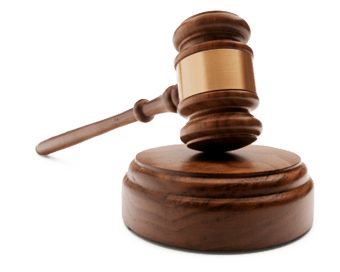Property Disputes and Your Legal Options
Property disputes are common between neighbors. They even occur between companies and governments. People want to protect what is legally theirs, but sometimes the boundary lines are not clear.
When you have a property dispute, it can create tension, which may lead to other issues. It is important that if you end up in this situation that you find a way to resolve the matter in a legal manner.
Find out what you can do if you have a property dispute. Discover the legal remedies and actions that can help you clear up a misunderstanding or manage a serious issue involving your property.
What Is a Property Dispute?
Property disputes are legal disputes that involve real estate, including single-family homes, apartments, roads, condominiums and ponds. Property disputes can involve a wide range of parties, which might include some of the following:
- Neighbors
- Homeowners’ association
- Landlords and tenants
- Family members
- Trespassers
- Property visitors
- Government agencies
Common Types of Property Disputes
Oftentimes, the result of a property dispute is the plaintiff will receive compensation to cover their property losses. It’s important to know about common disputes so you can better understand the situation that you’re in. The most common property disputes include:
- Disputes between neighbors regarding where property lines exist
- Disputes between landlords and tenants regarding who is at fault for damage to the property
- Homeowners and real estate developers disagreeing over who is responsible for repairs on construction
- People blocking their neighbor’s view via a “spite fence” or another structure specifically made to annoy their neighbor
- Disputes between mortgage lenders and creditors over who can foreclose a property and who receives the proceeds of a sale
- Disputes between homeowners and government agencies about whether they have a utility easement
- Ownership disputes about who is the rightful owner of a property
- Issues with zoning
This is not an exhaustive list. You may find other situations where a property dispute occurs. In general, if you own land, you have to constantly watch out for it and ensure that others are not using it in an illegal way or trying to claim it as their own.
Legal Process for Boundary Disputes
Has someone brought a property dispute against you, or are you bringing a property dispute against someone else? If so, it’s important to understand the legal process you will go through. This starts with understanding the issue at hand.
Understand the Boundary Issue
To understand the specific boundary dispute, you’ll have to do the following things:
Complete a land survey to locate the exact boundary of your home as outlined in the legal description of the deed. This survey will help you understand where your property boundaries are and how much of your land is being encroached upon.
Conduct an appraisal to learn the exact market value of the piece of property that is in dispute.
Do a title search to find all of the documents that are in the chain of title of your property. The title search will show if there are any deeds that may affect your ownership of the property.
It’s likely that these things will have been done when you purchased the home. If that’s the case, the documents you already have should suffice unless the case goes to court.
Try to Find a Solution with Your Neighbor
Property dispute litigation can cost a fortune, not to mention it can take a long time to settle a dispute. That’s why it’s important to open a discussion between you and your neighbor. If you can reach an agreement and settle the dispute without going to court, you can save time and money.
Try to communicate directly with your neighbor. You can attempt sending a letter, email, making a phone call or visiting his or her home if that’s a safe option.
If no progress is made and it’s clear that you and your neighbor are still on completely different pages in terms of an agreement, then it’s time to take legal action.
Send a Demand Letter
At this point, you should consider hiring an attorney to assist you. He or she can help you understand if you have legal grounds upon which to stand. If you do, then you can send a demand letter.
This letter will be from your attorney to your neighbor and will outline the property dispute. It will either give your neighbor the option to respond to the dispute via a requested action or it will provide a reasonable price for settling the dispute out of court.
Your neighbor will likely forward this letter to their attorney so they can have a better understanding of the boundary dispute. From there, the attorneys on both sides will decide the best course of action moving forward.
Go to Court or Reach a Settlement
Typically, the best option for both sides is to settle the dispute out of court to avoid costly litigation fees. But if your negotiations are going nowhere, it might be necessary to file the dispute with the court.
The court will consider both sides, look closely at the evidence presented and determine who owns the property in question.
You can still work out of court to try to reach a settlement because there will be an increasing amount of costs that come with moving through the court process. If you do reach a settlement, then the court will usually accept it and dismiss your case.
If you can’t reach a settlement, then the court will make a final decision based on the evidence you both submit. The court’s decision is legally binding. You may not agree with it or it may not be exactly what you were hoping for. That is why it is always in your best interest to reach a settlement.
Work with an Experienced Local Property Dispute Lawyer
When it comes to property disputes, you should work with an experienced property dispute attorney. Whether you’re filing a property dispute against your neighbor or you are defending a dispute brought against you, you’ll need a lawyer that understands property law on your side. An experienced lawyer can help you reach a settlement before taking the dispute to court, which will save you both time and money.
Submit a request online or call us today at (866) 345-6784 to get in touch with an attorney in your area!


